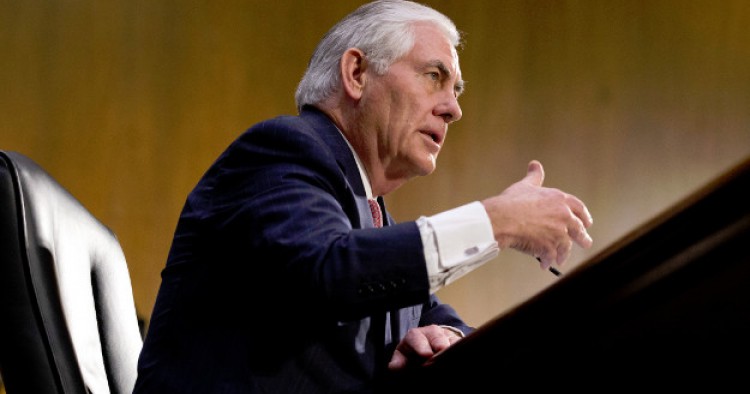President-elect Donald Trump’s nominee for the Secretary of State, Rex Tillerson said yesterday that he would conduct a “full review” of the 2015 Iran nuclear deal if the Senate confirmed him. Speaking before the Senate Foreign Relations Committee, Tillerson pledged that he would add further verification systems to “clarify whether Iran is complying.”
The Iranian government’s reaction was swift.
Bahram Ghassemi, the Iranian Foreign Ministry spokesman, told Fars News Agency that the Joint Comprehensive Plan of Action (JCPOA) – the nuclear agreement Iran signed with the United States and world powers in July 2015 – was not open for renegotiation. “JCPOA is an international agreement and it has not been made just between Iran and the United States. But it is an accord between Iran, the 5+1 Group and the European Union and it has been ratified by the United Nations as well.”
He also claimed that other world powers were on Iran’s side. “Other members of the 5+1 and Iran jointly stress the implementation of this multilateral and international agreement. They are committed to the complete and rigorous implementation of it.” He cautioned Tillerson to “think about the implications and consequences of his remarks.” Other Iranian officials echoed similar reactions.
Tillerson’s remarks and the Iranian reaction to them indicate that Tehran and the incoming Trump administration may be on a collision course over Iran’s controversial nuclear program.
Indeed, tension is already brewing. After the US Congress renewed the Iran Sanctions Act (ISA), Iran’s President Hassan Rouhani last month ordered the Atomic Energy Organization of Iran (AEOI) to start the development of nuclear-powered ships. Rouhani’s announcement came at a time when regional countries are already worried about Iran’s expansionist naval ambitions.
Iran’s latest announcement that it will import a huge amount of natural uranium from Russia is set to further alarm US lawmakers and the Trump team. Indeed, in his confirmation hearing, Tillerson also emphasized that a renegotiation of the nuclear agreement “means no nuclear enrichment in Iran, no storing of nuclear materials in Iran.” Iran has not made it clear whether it will use or store the natural uranium it will receive from Russia.
Moreover, Trump during the campaign vowed to renegotiate or “dismantle the disastrous deal,” and US lawmakers have also pledged to impose additional sanctions on Iran this year.
The Middle East Institute (MEI) is an independent, non-partisan, non-for-profit, educational organization. It does not engage in advocacy and its scholars’ opinions are their own. MEI welcomes financial donations, but retains sole editorial control over its work and its publications reflect only the authors’ views. For a listing of MEI donors, please click here.













